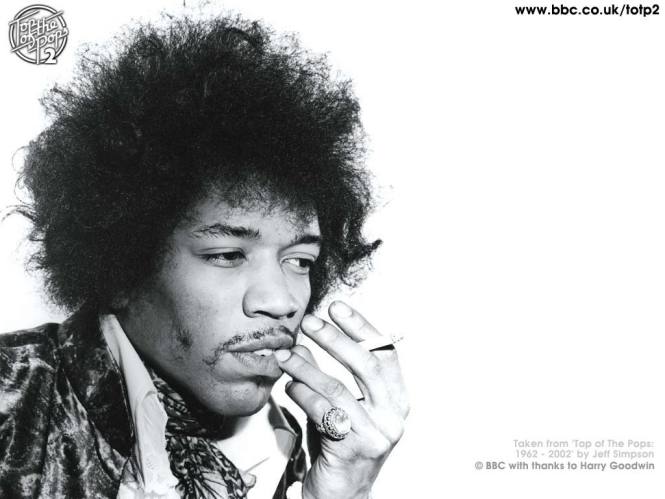Why Didn't Experience Hendrix Claim a Right of Publicity Violation?
When Experience Hendrix and Authentic Hendrix this week sued the makers of HENDRIX ELECTRIC vodka, why didn’t they assert a claim for violating the deceased musician’s right of publicity? The reason probably lies in a 2005 order from the Western District in a suit brought against a foundation run by Jimi Hendrix’s brother concluding that no such right could be assigned to those companies.
That case, Experience Hendrix, LLC, et al. v. The James Marshall Hendrix Foundation, et al., No. C03-3462 (W.D. Wash.), involved the same plaintiffs as in the HENDRIX ELECTRIC vodka case that STL discussed yesterday.

Plaintiffs in that case claimed Al Hendrix, Jimi Hendrix’s father and the sole heir to the Jimi Hendrix estate, assigned his rights to the plaintiffs before he died in 2002. The defendant foundation was a nonprofit run by Leon Hendrix, Jimi’s brother, whose mission was to help disadvantaged children from the same Seattle neighborhoods where Jimi was raised. In 2003, plaintiffs discovered the foundation was promoting a fund-raising event known as the “James Marshall Hendrix Awards Ceremony” or the “Jimi Awards.” Plaintiffs sued, claiming, among other things, violation of the Washington Personality Rights Act, RCW 63.60.010.
Defendants moved for summary judgment, arguing that no publicity rights survived Jimi’s death and descended to Al.
Western District Judge Thomas Zilly determined that New York law governed whether a right of publicity descended to Al because Jimi was domiciled in New York at the time of his death (though he had died in London). At that time under New York law, the law at the time of death determined what property existed in an estate and whether such property could pass to a decedent’s heirs. Thus, the Western District decided it was New York law as it existed at the time of Jimi’s death in 1970 that governed whether he had a right of publicity, and whether that right, if it existed, descended to his father.
The Western District found New York state courts, up to and including the time of Jimi Hendrix’s death, had limited the right of publicity to the statutory right to privacy applicable only to living persons. The court also found New York courts had consistently refused to recognize claims made by celebrities’ heirs for violations of the common law right of publicity.
For these reasons, the Western District determined that New York’s Civil Rights Law and its statutory right to privacy preempted any common law right to publicity and concluded that no right of publicity had descended to Al Hendrix in 1970.
If Al Hendrix had no right of publicity, he had no right to assign Experience Hendrix and Authentic Hendrix.
The Western District separately found the Washington Personality Rights Act, which includes in its protection rights of a “deceased personality,” also did not apply. The court reasoned:
“Because the Act does not contain on its face an express choice of law provision, the Act is not a statutory directive as to the choice of law to be applied in aright of publicity case. In addition, Jimi Hendrix was domiciled in New York at the time of his death and New York clearly has a greater interest in what property rights it chooses to recognize in its domiciliaries. Accordingly, Washington does not have such a dominant interest in solving the problem presented by this case that the Court should ignore the traditional choice of law principles and apply the Washington statute.”
(Citations omitted.)
For these reasons, the Western District dismissed plaintiffs’ right of publicity claim. This decision, in connection with collateral estoppel principles, would seem to explain why Experience Hendrix and Authentic Hendrix did not assert a similar claim this week.
Reader Comments